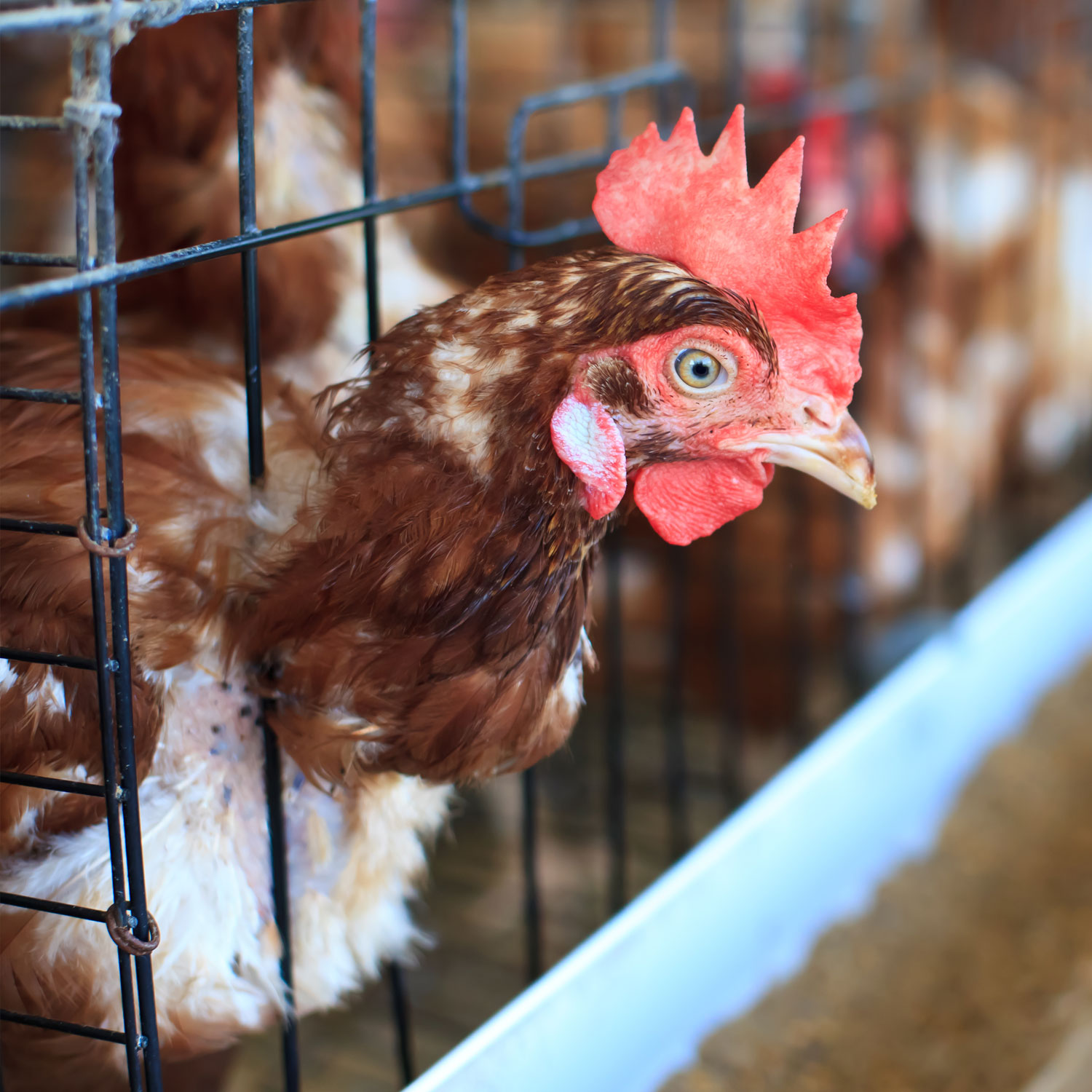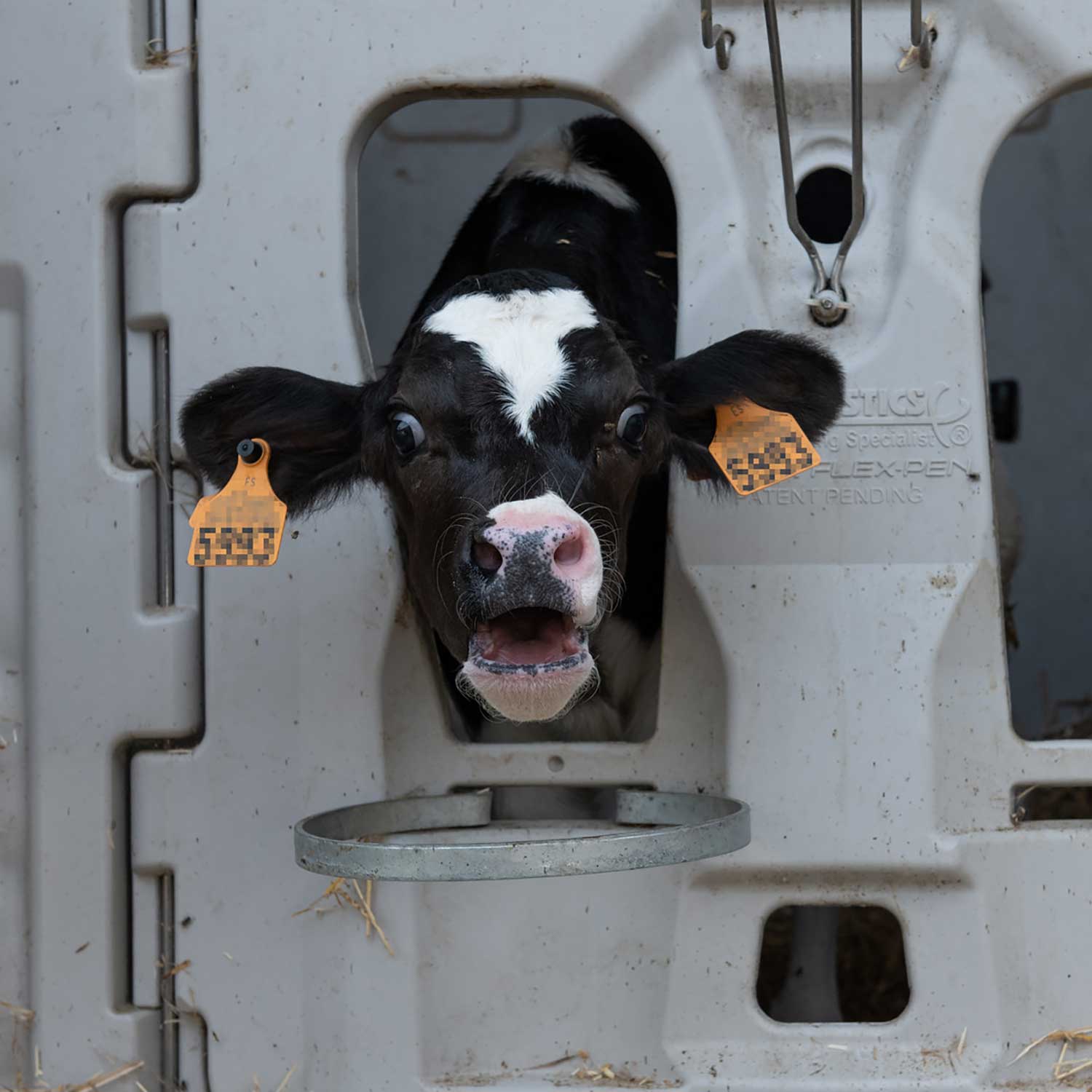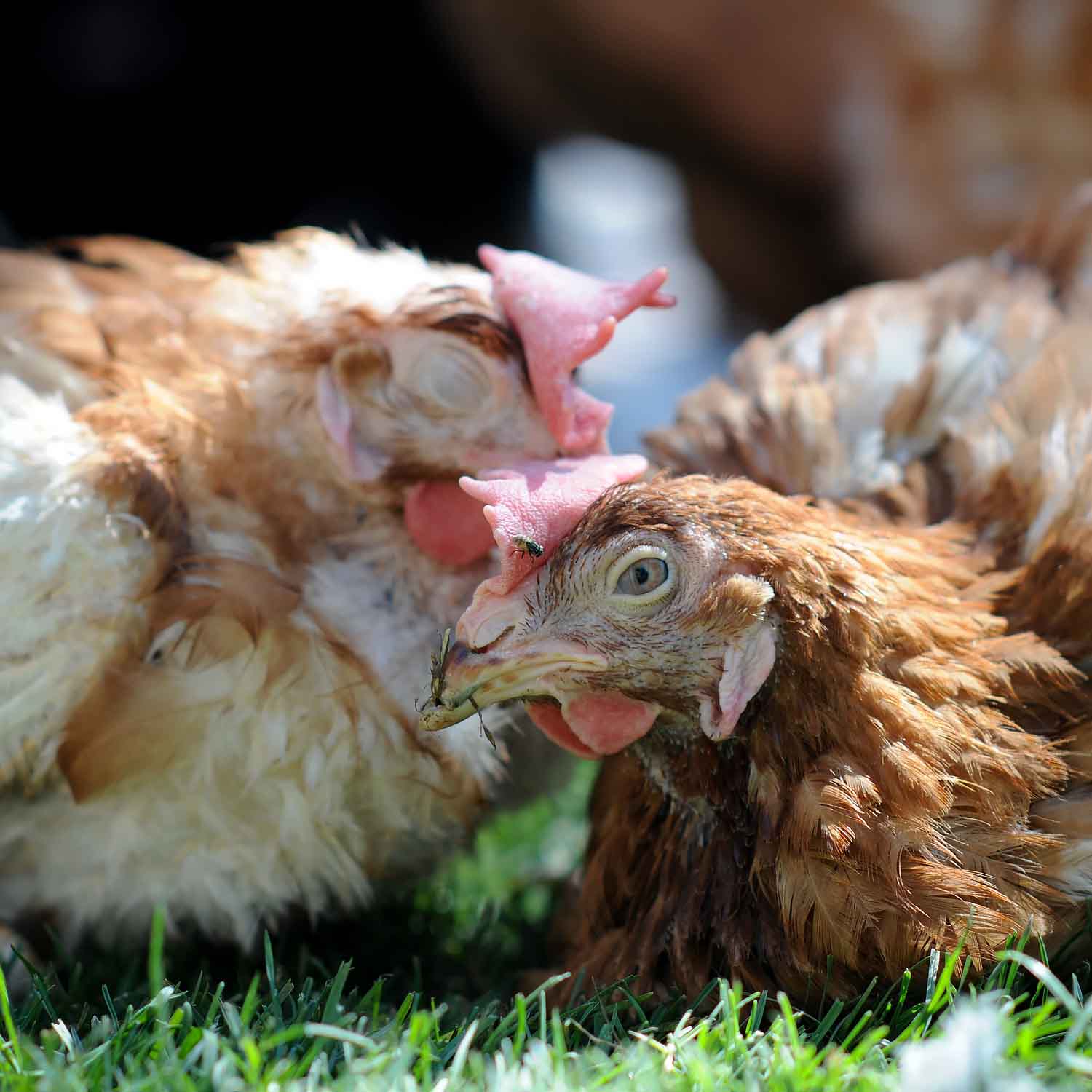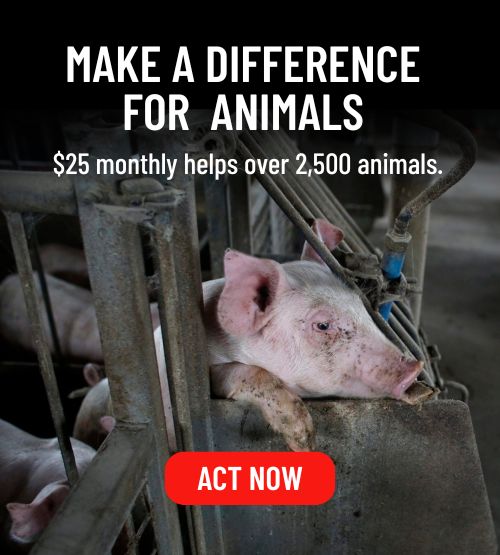Animal Equality Protests Denny’s on Las Vegas Strip

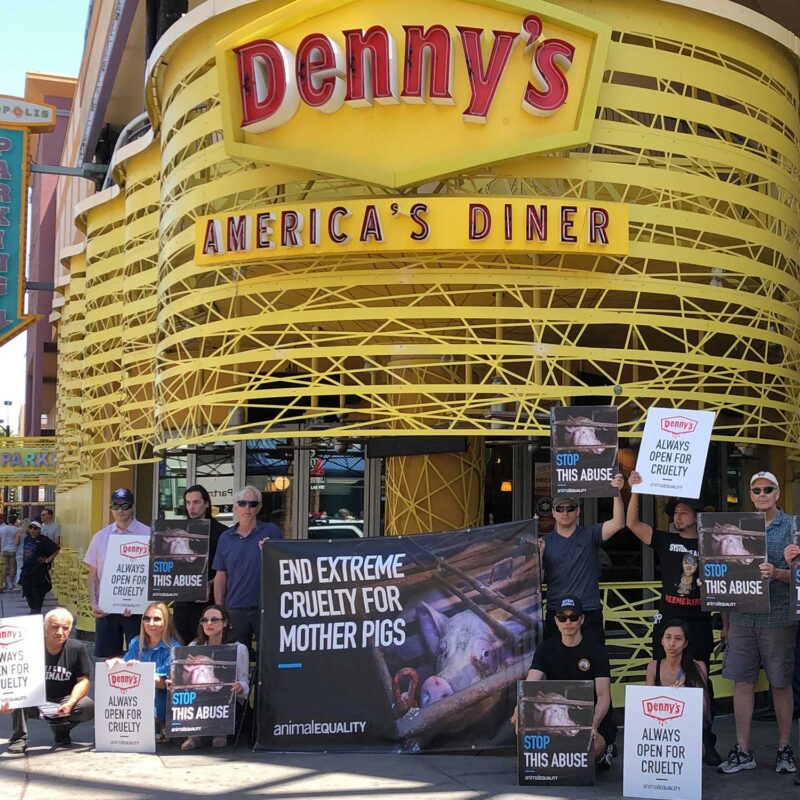
In the heart of Fremont Street, beneath the iconic yellow neon lights of Denny’s flagship restaurant, Animal Equality stood with a coalition of activists to protest Denny’s association with animal cruelty. Despite publicly committing to phasing out the use of “gestation crates” in its supply chain over a decade ago, Denny’s has failed to follow through on its promise.
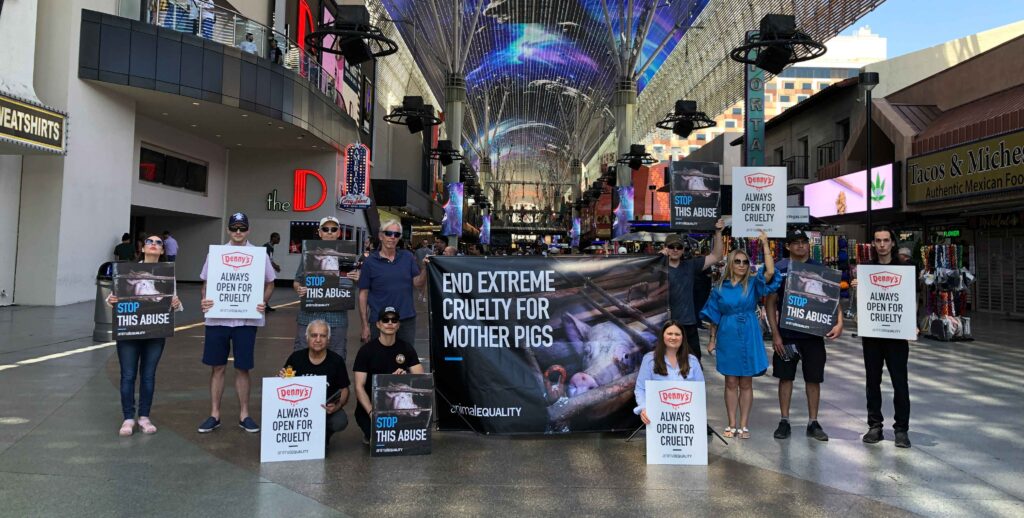
Dozens of passionate demonstrators gathered to demand that the corporation uphold its pledge and put an end to the cruelty inflicted upon these vulnerable animals. Participants held signs that read “Denny’s: Always Open for Cruelty” and “Stop this Abuse,” while a light-up mobile billboard drove up and down Las Vegas’s most populated areas for 19 hours displaying a photo of a pig inside a gestation crate.
What Are Gestation Crates for Pigs?
Gestation crates are designed to restrict the movement of pregnant pigs in factory farming. These crates are small, measuring 7 feet by 2 feet, and are used to confine mother pigs for most of their lives. Sadly, the majority of the 6 million mother pigs in the US are kept in such crates, providing them with only enough space to move a few inches in any direction.
The use of gestation crates results in pigs being unable to turn around or exhibit any natural behaviors. This lack of movement can lead to immense stress and frustration in these intelligent and social animals. As a result, pigs resort to biting the metal bars of the crates or even banging their heads against them in a bid to cope with confinement.
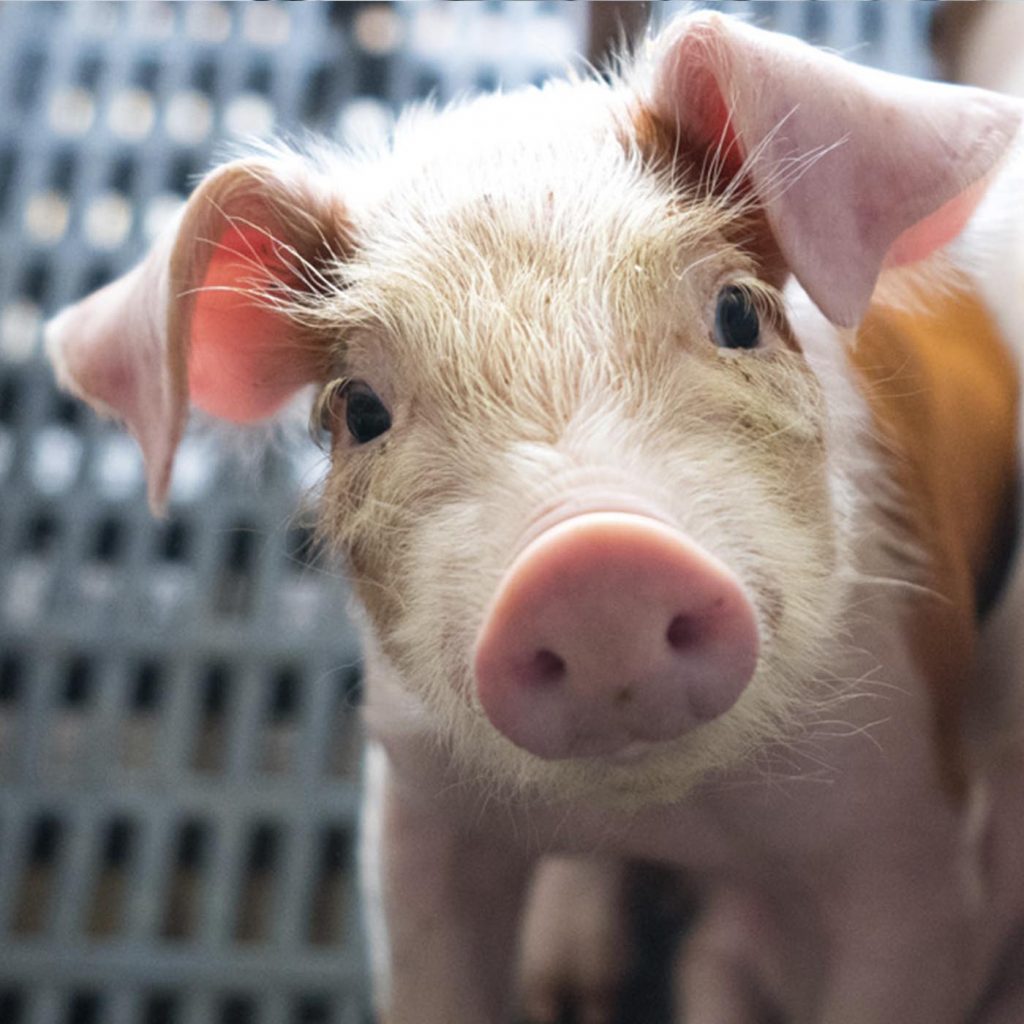
SAVE ANIMALS FROM ABUSE
Pigs, cows, and other animals feel pain and deserve to be protected from abuse.
You can protect these intelligent animals by simply choosing plant‑based alternatives.
Denny’s Remains Silent
Gestation crates have been banned in ten US states, including Arizona, California, Colorado, Florida, Maine, Massachusetts, Michigan, Ohio, Oregon, and Rhode Island. These crates have also been prohibited in countries like the United Kingdom and Sweden. Nearly 100 companies in the US, such as Nestlé, Campbell’s, Aramark, and Kraft Heinz, have committed to eliminating gestation crates from their supply chains.
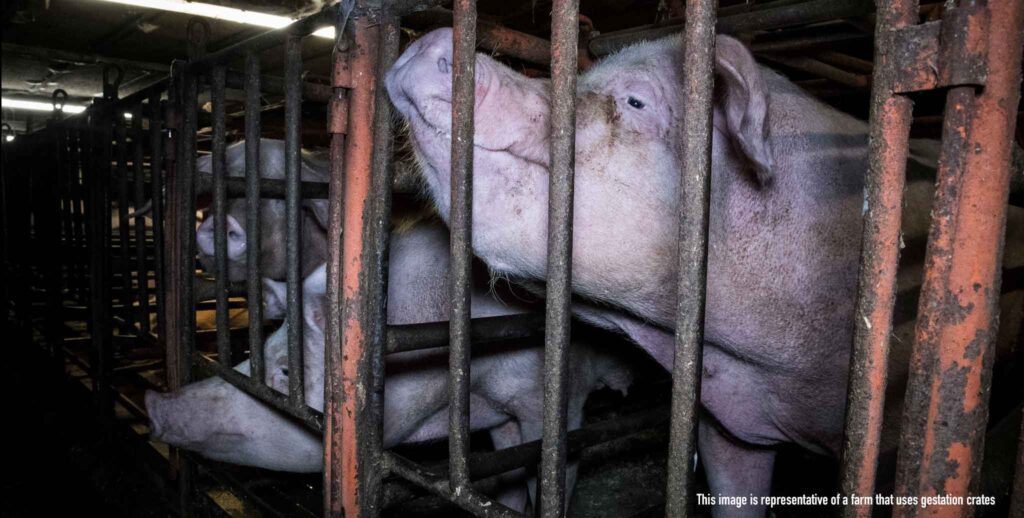
Animal Equality has been working with corporations to establish protections for farmed animals in US supply chains since 2018. Recently, this global organization won a campaign against Compass Group, the world’s largest food services company, which committed to banning crates for pigs in its US supply chain.
Just a month later, Animal Equality secured a policy for crate-free housing from Delaware North, the fourth-largest food service provider in the US, then from Conagra, the supplier of iconic food products Slim Jim, Chef Boyardee and Orville Redenbacher.
The use of gestation crates in pig farming has been a debated issue, and it has now gained recognition from not just large corporations but also the United States Supreme Court. The court recently upheld California’s Proposition 12, also known as Prop 12.
Prop 12 was passed in California in 2018 to establish fundamental protections for animals on factory farms. The legislation mandates minimum space requirements for hens, pigs, and calves, which are typically confined to cages for most of their lives on farms. Prop 12 requires that certain egg, pork, and veal products sold in California, including those imported from other states, meet these requirements.
In September 2021, the National Pork Producers Council and the American Farm Bureau Federation petitioned the Supreme Court to hear their case against Prop 12. The organizations sued in 2019, arguing that Prop 12 violated the Commerce Clause of the U.S. Constitution, which regulates states’ ability to regulate commerce outside their borders.
Last Thursday, May 12, the Supreme Court upheld the constitutionality of Prop 12 in a 5-4 majority decision, following oral arguments around the case last October. However, Chief Justice John Roberts and Justices Samuel Alito, Brett Kavanaugh, and Ketanji Brown Jackson dissented.
Unveiling the Dark Past of Denny’s Supply Chain
Back in 2012, Denny’s made a public commitment to eliminate gestation crates from its operations, joining other popular restaurant chains such as Chili’s and Cracker Barrel in this effort. In an issued statement, Greg Linford, Denny’s former vice president of procurement and distribution said: “Denny’s takes its role as a responsible corporate citizen seriously. We will endeavor to purchase products from companies that provide gestation crate-free pork and are committed to influencing our suppliers to share in a gestation crate-free vision for the future.”
Following its commitment to eliminate gestation crates from its operations, Denny’s provided a follow-up statement two years later. In that statement, a Denny’s official stated that removing crates from the company’s supply chain was the “best for our company, our guests, and our continued work to improve animal welfare.” Additionally, the statement outlined Denny’s efforts to request regular updates from its suppliers on the progress being made toward transitioning to crate-free housing for pigs.
Denny’s has since reported little progress, sparking the launch of a nationwide campaign by Animal Equality this past January. The animal protection group is urging the restaurant chain to “keep its promise to mother pigs”.
The fight to end cruelty is an ongoing battle, and Animal Equality is leading the charge with this powerful campaign urging Denny’s to commit to end this cruelty. However, despite these efforts, Denny’s has remained silent on the issue. Even though the road ahead may be long, Animal Equality remains dedicated to fighting for animals, one where they are treated with the respect and dignity they deserve.
Call Denny’s Customer Service and express your frustration with the animal cruelty they are allowing for pregnant mother pigs: 1-800-733-6697 (Mon-Fri, 10am-5pm EST).
Join the Movement to End Extreme Confinement
Consumers can send a powerful message to corporations that animal cruelty is unacceptable and will not be supported by choosing to replace meat, dairy, and eggs with plant-based alternatives.
Fortunately, adopting a cruelty-free lifestyle has never been more accessible, with a wide variety of options available. By making this choice, individuals can join the millions of people around the globe who have already taken the leap and can take comfort in knowing that they are making a positive impact by sparing animals from needless suffering with each bite they take.
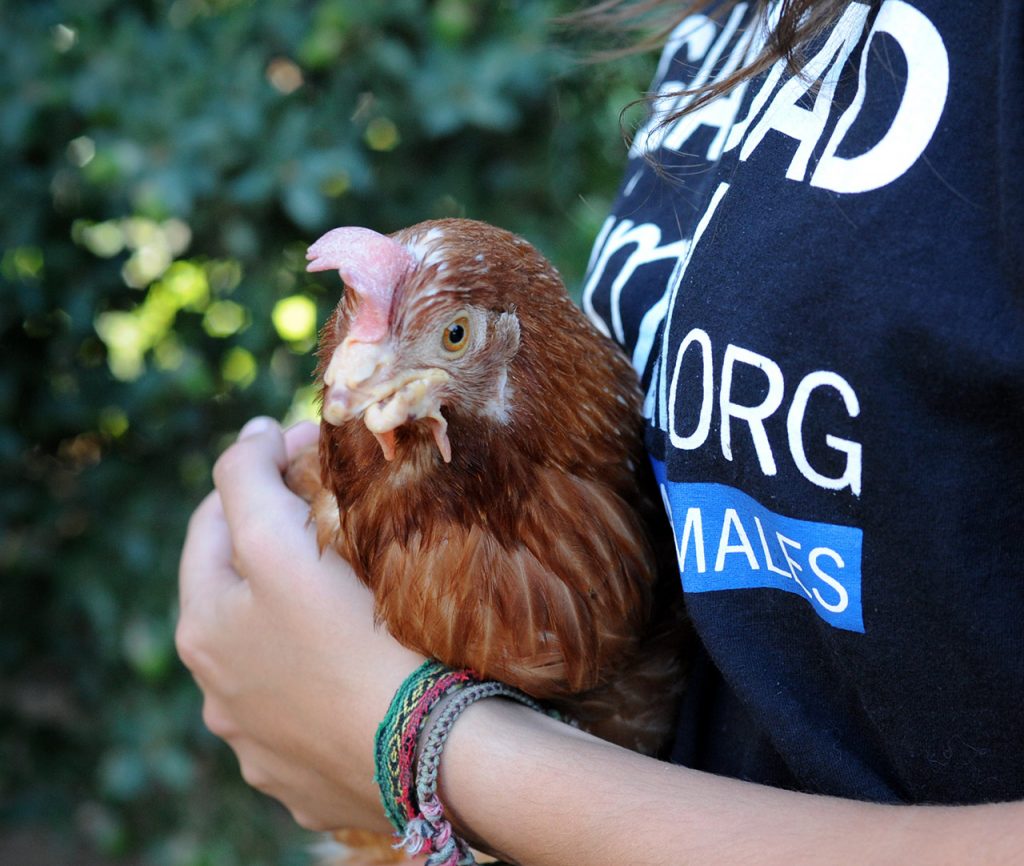
LIVE KINDLY
With rich emotional lives and unbreakable family bonds, farmed animals deserve to be protected.
You can build a kinder world by replacing animal food products with plant‑based ones.

